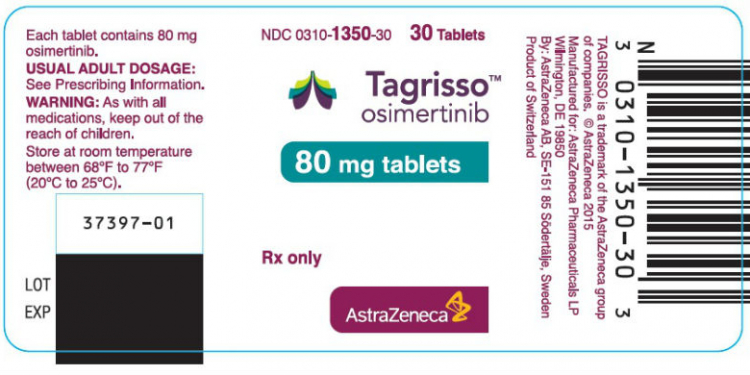The FINANCIAL — AstraZeneca on March 27 announced that the China Food and Drug Administration (CFDA) has granted marketing authorisation for Tagrisso (osimertinib) 40 mg and 80mg once-daily oral tablets for the treatment of adult patients with locally-advanced or metastatic epidermal growth factor receptor (EGFR) T790M mutation-positive non-small cell lung cancer (NSCLC) whose disease has progressed on or after EGFR tyrosine kinase inhibitor (TKI) therapy.
Lung cancer is the most common form of cancer and the leading cause of cancer-related deaths in China.1 Approximately 30-40% of Asian patients with NSCLC have the EGFR mutation at diagnosis, and nearly two thirds of these patients whose disease progresses after treatment with an EGFR TKI develop the T790M mutation, according to AstraZeneca.
Sean Bohen, Executive Vice President, Global Medicines Development and Chief Medical Officer at AstraZeneca, said: “This is an important step forward for Tagrisso and a significant opportunity to bring a breakthrough medicine to patients with NSCLC in China, where EGFR mutation rates are some of the highest in the world.”
Eligibility for treatment with Tagrisso requires the patient’s EGFR T790M mutation status to be determined with a validated test using either tumour DNA derived from a tissue sample or circulating tumour DNA (ctDNA) obtained from a plasma sample (blood test).
Tagrisso is the first AstraZeneca medicine approved under the CFDA’s Priority Review pathway, using an accelerated timeline for an innovative medicine. The rapid review and approval signal the urgent need for new, targeted treatments with the potential to address specific types of cancer with high incidence rate and significant unmet medical need in China. They are also a recognition by the CFDA of the accelerated reform of China’s regulatory framework to benefit Chinese patients.

































Discussion about this post